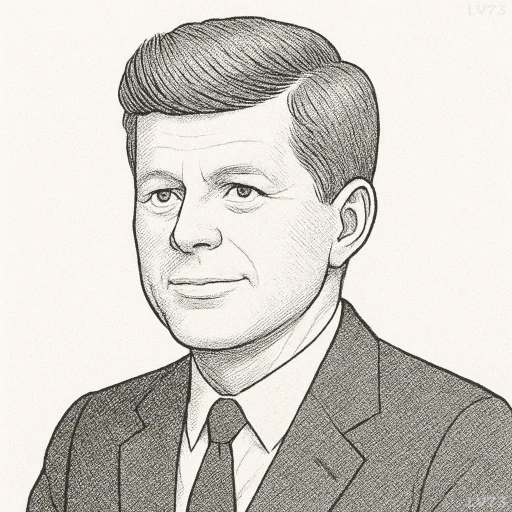“A man may die, nations may rise and fall, but an idea lives on.”

- May 29, 1917 – November 22, 1963
- American
- Politician
table of contents
Quote
“A man may die, nations may rise and fall, but an idea lives on.”
Explanation
In this powerful statement, John F. Kennedy reflects on the enduring power of ideas—something that transcends individual lives and the fortunes of nations. Kennedy suggests that while human lives are finite and the fate of nations can be uncertain, ideas are eternal. The notion here is that an idea, once it has taken root, can continue to inspire, shape, and influence the world long after the people or empires associated with it have passed. This idea aligns with the broader theme of legacy—how an individual’s influence may endure through their contributions to ideas, movements, and societal change, rather than just through physical achievements. Kennedy’s words emphasize the immortality of ideas as a source of transformation and progress.
Kennedy’s statement is also a reflection of his belief in the power of visionary leadership. As a political leader, he understood that the ideas behind the civil rights movement, the space race, and even democracy itself were larger than any individual leader or government. These ideas had the potential to shape the course of history, regardless of the political turbulence or personal challenges that may arise. For example, Kennedy’s own vision for the space program and international diplomacy—embodied in his “New Frontier” and his speeches on peace and liberty—are concepts that have continued to resonate well beyond his presidency. Kennedy believed that the pursuit of these lofty ideas was something that could inspire future generations to push boundaries and take risks, even when the immediate circumstances seemed uncertain or dire.
In the contemporary world, Kennedy’s words remind us that ideas have the power to outlive the limitations of time, place, and circumstance. Today, the ideas of freedom, equality, and social justice continue to inspire movements for change, despite the challenges of political resistance and shifting national dynamics. Whether it is the legacy of Martin Luther King Jr., the influence of innovations in science and technology, or the spread of democratic values around the world, ideas continue to shape history long after the people or nations associated with them are gone. Kennedy’s statement encourages us to think about the ideas we contribute to society, and how these ideas might live on and continue to make an impact, long after we are no longer here to see their effects.
Would you like to share your impressions or related stories about this quote in the comments section?
